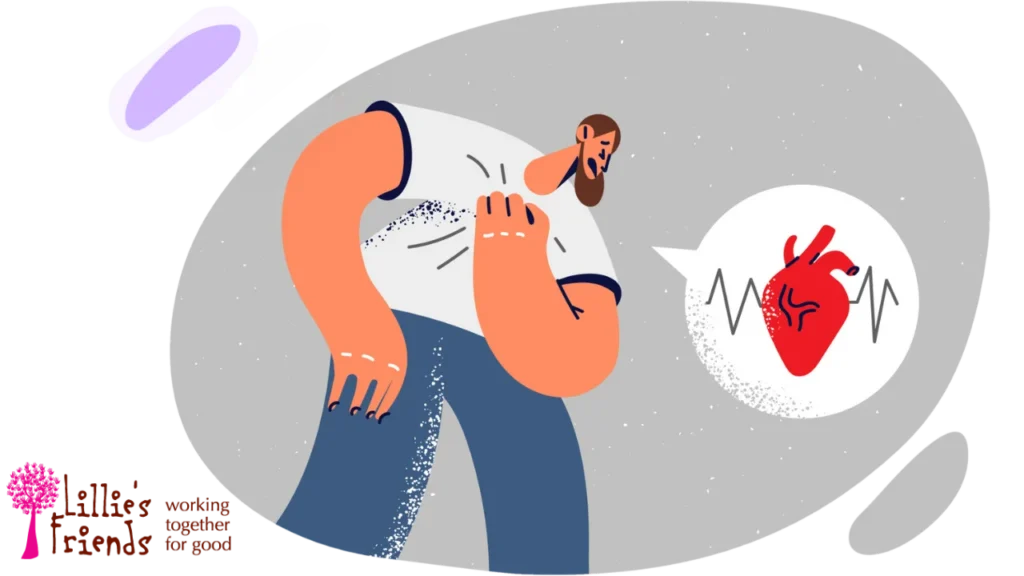Heart palpitations, another name for rapid heartbeat, are a medical disorder where the heart beats or raced too quickly for a variety of reasons, including anxiety. The normal heart rate is between 60 to 100 beats per minute , but when a person has anxiety-related heart palpitations, their heart rate increases to above 100 beats per minute.
According to a recent research, at least one in four adult Americans over 40 have irregular heartbeats, which is a prevalent cause of heart palpitations. These include heart rates that are either too high or too low.
Primary Heart Palpitations Causes
Heart palpitations may be caused by many reasons in patients, such as:
- Stress, anxiety, and panic attacks
- The menopause
- Vigorous exercise
- Low blood pressure
- Drinking too much alcohol
- A time or pregnancy
- Reduced quantities of red blood cells (anemia)
- A drop in blood glucose levels
- Unusual electrolyte levels in the body
- Certain drugs, such as coffee and stimulants
- Systemic illness caused by thyroid hormones
- Lack of sleep (may result in morning heart palpitations)

Anxiety is one of the most frequent causes of heart palpitations, while there are many other potential reasons as well, including those listed above.
What Is a Heart Palpitation Caused by Anxiety?
Heart palpitations and anxiety usually go hand in hand. Heart palpitations may sometimes manifest as a sign of depression.
Heart palpitations caused by worry may cause a person’s heart to race, flutter, or miss a beat. The ears, throat, or neck all have a hammering sensation from the heart. After an anxiety episode, this is how people usually feel, however palpitations may also be brought on by extreme enthusiasm.
Here’s a quick rundown of how this procedure works: The autonomic nervous system (ANS) is impacted by anxiety, which sets off the fight-or-flight response . This speeds up breathing, heart rate, and blood pressure in order to enable quick blood flow to the body’s other organs.
Be aware that having bipolar illness, anxiety disorders, or other mental health issues may influence how a person’s body responds to stressful circumstances.


